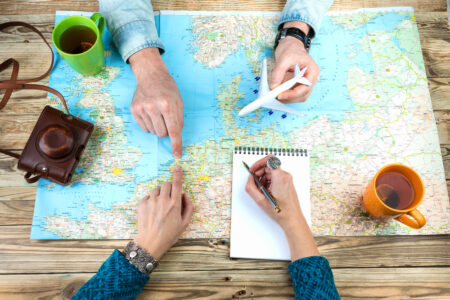Nearly half (44%) of business travellers believe that a British passport grants them special privileges or powers while travelling. This belief is even more prevalent among those under 34, with 52% holding this view, according to a new survey of UK business travellers conducted by Opinium and commissioned by World Travel Protection, a leading global travel risk management organisation.
However, Kate Fitzpatrick, Security Director at World Travel Protection, says this is wishful thinking: “While it might be reassuring to imagine, the reality of finding yourself in a dangerous situation abroad is far from a James Bond movie. If you break a law in another country, ignorance won’t save you. You will be subject to the local legal system, regardless of your nationality. Generally, the UK government will only intervene in catastrophic, large-scale situations. Evacuating civilians from crisis situations is dangerous and complex and is not undertaken lightly by any government.”
In addition to following local laws and customs, business travellers must prepare for increasing risks. Over half (54%) of business travellers feel travel is riskier than it used to be, citing concerns such as natural disasters, extreme weather, and terrorist attacks.
Fitzpatrick comments: “From conflict and unrest to riots and adverse weather conditions, business travellers must remain vigilant about their surroundings. It’s essential that organisations understand the risk profile of each team member, where they’re going, and what they’ll be doing. We call this combination of risk factors the ‘Foreseeability of Risk,’ which helps ensure risks are identified and minimised.”
Another change which has an impact on travel risk is that business travellers are now striving to maximise their travel budgets by scheduling more meetings per trip (33%) and extending their stays (29%).
“Even if a business traveller has visited a destination multiple times, longer stays might mean using local transport more, and trying different restaurants and bars, potentially in the evenings. Pre-travel safety briefings should include information on what’s socially acceptable in a destination, including advice for LGBTQ+ travellers and women, who may be more at risk,” Fitzpatrick advises.
Despite these challenges, the survey found that business travellers are taking personal responsibility for their safety, with nearly three-quarters (71%) researching the risks and threats of their destinations. However, they are vulnerable if they lose access to their smartphones, with 70% relying heavily on them and 64% feeling lost without them. Sensibly, 64% of travellers always carry printed versions of travel documents in case of device issues.
“It’s not uncommon for communications to go down in an emergency,” said Fitzpatrick. “Governments may shut down networks, or mobile systems may become overloaded. That’s why we always urge our customers to think old school before they travel. Ensure you have hard copies of essential information, including your passport, tickets, contact numbers, accommodation details, and travel insurance information.”
Fitzpatrick concludes: “To mitigate risk and alleviate concerns, organisations should ensure that travelling employees are provided with the most up-to-date information on destinations and travel routes, and consider using a travel risk management company with a live travel app. Its geolocation capabilities mean we can locate a user with pinpoint accuracy in an emergency. We can also monitor emerging or evolving nearby risks to ensure the traveller is aware of potential disruptions while avoiding alerts of irrelevant incidents farther away. With a simple press of the ‘emergency’ button, travellers can also immediately reach our team of medical and security experts 24/7 if they find themselves in danger.”

